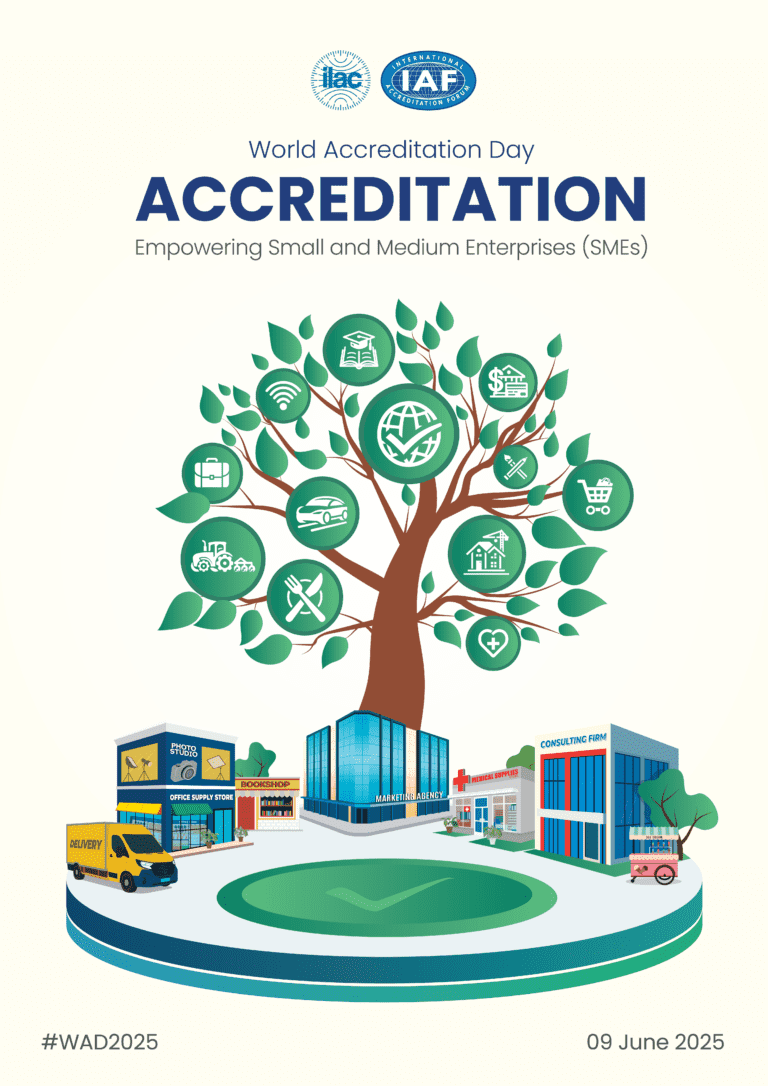What helps SMEs stand out and succeed? Beyond innovation and resilience, it often comes down to credibility, especially in competitive and regulated markets.
This year’s World Accreditation Day is all about empowering SMEs (small and medium-sized enterprises) to meet regulatory requirements, improve internal processes, and grow their businesses in local and international markets – but it can be hard for these businesses to gain momentum. Limited resource, tough competition and difficulty accessing new markets are some of the challenges faced by SMEs today. But what can they do to combat it?
At Amtivo, we work with SMEs to assess their management systems against internationally recognised standards, helping them build trust, demonstrate competence, and grow with confidence.
Accreditation vs Certification: What’s the Difference?
Though often mentioned together, accreditation and certification serve different roles in the world of ISO.
Accreditation is for certification bodies – like us. It means we’ve been independently approved by Irish National Accreditation Board (INAB) to certify businesses like yours to internationally recognised standards. It proves our competence, impartiality and credibility. We’re accredited, so your certification is trusted with confidence.
Certification is for businesses like yours. It formally recognises that your organisation meets the requirements of a specific standard, such as ISO 9001, ISO 27001 or ISO 14001. Certification from an accredited certification body shows your commitment to quality, compliance and consistency – across customers, partners and regulators.
In short, certification bodies get accredited, and businesses, like yours, get certified.
How Certification Helps SMEs Comply, Improve, and Grow
According to the most recent CSO data, SMEs account for 99.8% of businesses in Ireland’s business economy. This data highlights the vital role of SMEs in driving compliance across the business landscape.
Certification to recognised international standards offers SMEs a credible way to demonstrate robust internal systems and a commitment to best practice When issued by an accredited certification body, it provides third-party assurance that helps SMEs meet stakeholder expectations, build trust and compete more confidently.
From ISO 9001 for quality management, to ISO 27001 for information security, and ISO 14001 for environmental management, certification provides SMEs with benchmarks against which to build a management system that can be aligned with their business goals and priorities.
Despite their scale and contribution, many SMEs face challenges in proving their capabilities -particularly in sectors that demand consistent proof of quality, data protection, or environmental responsibility.

What to Expect from the Certification Process as an SME
For many SMEs, the idea of certification can feel daunting, but it doesn’t have to be.
We aim to make the process as straightforward and transparent as possible. Our certification journey typically follows five key stages: enquiry, application, assessment, certification, and ongoing surveillance.
To support SMEs at every stage, you can find out more about ISO certification on our website and also download our helpful resources, such as:
- Practical certification checklists for ISO 9001, ISO 14001, ISO 27001 and more
- An ISO Buyer’s Guide to help you get started
These tools are designed to help SMEs understand what’s required at each step, identify gaps ahead of assessment, and prepare with peace of mind.
Why Certification Supports SME Growth
ISO certification offers SMEs a powerful combination of business improvement and competitive advantage. It’s not just a technical process – it’s a strategic tool for credibility, efficiency, and long-term resilience. Other benefits of certification might include:
- Improved credibility with clients, suppliers, and stakeholders
- Easier access to new contracts, especially in regulated sectors or supply chains that require ISO-certified systems
- Greater operational efficiency, through structured internal processes and continual improvement
- Risk management, particularly in areas like information security (ISO 27001) or health and safety (ISO 45001)
- Stronger environmental or social responsibility credentials, for businesses pursuing ISO 14001 and 15001
Ready to Start Your Certification Journey?
Ready to learn how certification can support your growth? Contact our team today.




